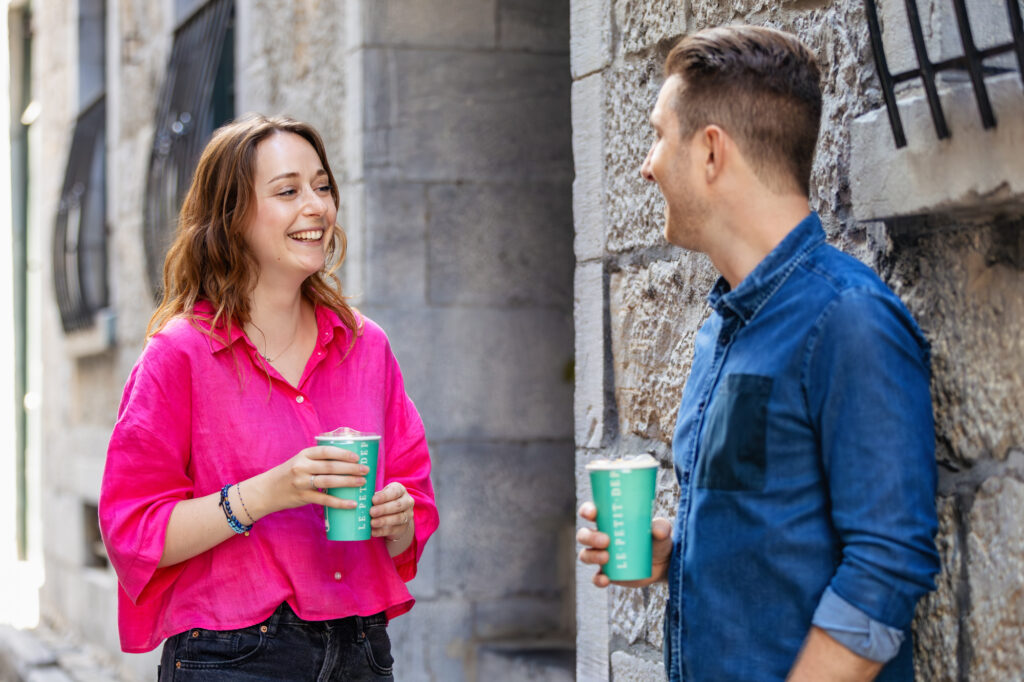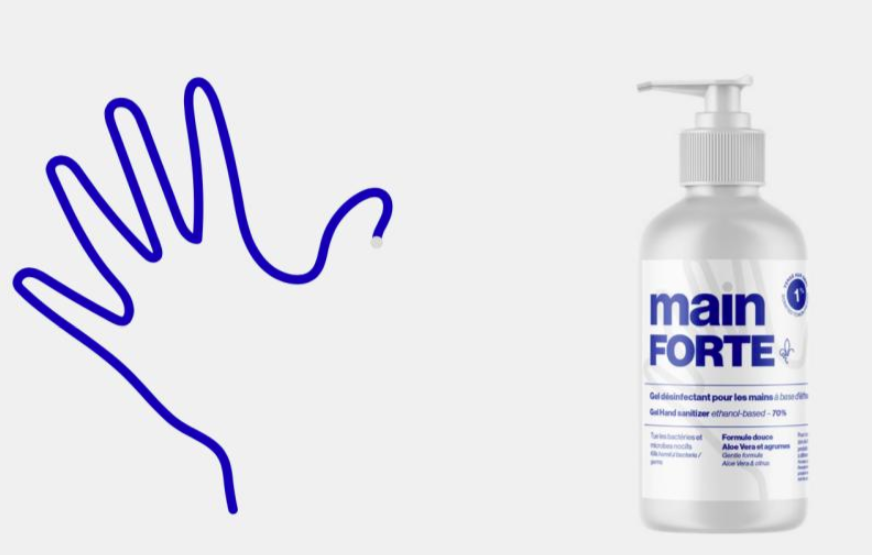Let anyone who has never bought an electric rake or a Corsican craft beer on QoQa cast the first stone. Today, more than 600,000 Swiss people regularly buy on the online sales community platform, for an annual total of more than 70 million in 2018. The recipe has been the same for 14 years: one product per day, offered at a great price. But what is the miracle ingredient? More than the quality of the items or the attractiveness of the prices, it is QoQa’s exemplary community management that we need to focus on. In the era of digitalization, building customer loyalty and getting closer to them on the web is becoming crucial. Multinationals are releasing the necessary budgets to meet this challenge. But what about the SMEs that make up the French-speaking economic landscape? Although smaller, some manage to stand out. So I ventured into the lair of the “otters” to bring you their secrets.
Robin von Känel: Today everyone knows QoQa. 14 years ago the concept was very innovative. Why did you launch QoQa?
Pascal Meyer: I always wanted to be an entrepreneur and loved sharing good tips with my friends. At the beginning, we were 25 friends and now we are more than 600,000 friends. The idea was really to share good tips with people, to create discussion. I loved creating something that did not exist before, that shook up what already existed.
You are not a conventional boss. What is your vision of the role of a manager in 2019?
For me, a manager in 2019 should not be “THE manager”. He must be the external image of the company, represent it. I define my role as someone who must bring vision, creativity and be the ambassador of what is happening at QoQa and especially lead what is happening internally.
Your image is indeed used a lot, particularly in QoQa’s various guerrilla marketing actions. Where did this idea come from?
When you don’t have a penny and you have to start a project, you make do with what you have. The idea was to ask ourselves how we could make ourselves known by being creative. We decided to expose ourselves, to remain ourselves. It was important for me to show that there was someone behind the box, that it was a group of humans who worked hard. It wasn’t necessarily my image alone. Of course, it’s not as easy for all professions, but it’s possible. It’s the relationship with the human being that makes the difference. If the person in front of you can get down to your level, whether it’s a banker, a lawyer or whatever, the relationship will be great.
Since then, all of QoQa’s employees seem to have become true ambassadors for the company. How did this happen?
It came naturally. If you think about it, you quickly realize that you can get a lot more people who are allied with your cause than if they are just simple executors. The people who work here feel involved in what they do. This involves respect, but also the right to speak, to be able to say when they think something is wrong, or to develop their own projects. I am a big defender of this philosophy. Everyone has their say. Some will want to take less initiative, that’s okay. Some love it, that’s okay too. It requires a lot of listening on everyone’s part.
How do you motivate them to promote the company’s values?
For us, the number one value is respect. We respect each other as colleagues. The first step is simply to trust them by abolishing the hierarchy. Then we implemented an agile methodology called SCRUM. We applied it at all levels. It’s not perfect, but at least people can express themselves and improve things. We give them total freedom. I’d rather they answer a customer’s question wrong than there being no answer at all. In all cases, we congratulate them and explain how to do better next time.
This also involves barbecues, tastings, internal events. They spend a crazy amount of time here. It has to be cool! It allows us to exude authenticity, life, who we are, and why we are here. It’s also the role of the company, to please its employees. They work well and we have to reward them. We can’t skimp. What does 10.- or 20.- per person per month represent if we manage to make them happy? Do you realize the sympathy capital for the company? It’s clear!
What are the benefits of such an approach?
It is difficult to measure because I did not set this up to benefit from it. For me it is more of a philosophical question. It pleases people and that is enough for me. When I take the pulse internally, they are happy. And when I listen to the echoes externally, I realize that this approach is atypical. My goal, my role within the company, is to ensure that everyone is happy.
Since people feel good, we have few departures, we have never had any cases of burnout. We try to work with the best, people who have an entrepreneurial mentality, who want to grow rather than execute. It is not always easy to find. When we put an ad, we receive a lot of applications, so that helps.
QoQa is top of the class in community management in French-speaking Switzerland. What is your secret?
The first thing to understand is simply that if you respect the people you interact with, the people who adhere to your philosophy will be close. Managing a community means listening to its responses. When I see companies that delete comments, that censor to have only positive things, I find that it is a lack of respect. This explains the lack of commitment and loyalty of the people they have in front of them. Then, you have to regularly animate this community by sharing information, events, good deals, etc. This exchange with the community, this respect, listening and the response that you will give, all of this is very important. In addition to this consideration for the community, it is important to understand that it is a joint effort. It is the combination of the efforts of all QoQa employees that allows us to respond to people, be active, keep the right tone, exchange on an answer. For the answer to be good, it requires commitment. It’s not a job where you finish at 5:30 p.m., “Bye, good!” and go home. Everyone gets involved in this task of answering and puts their guts into it.
To remember
Like many other entrepreneurs, Pascal Meyer has been able to put his personal brand at the service of his company. However, he has taken the ambassador concept to the next level by involving all of his employees in the process, which has allowed him to humanize Qoqa. The resulting communication takes place between real people and not between a company and its customers. The dialogue is therefore more natural and authentic, thus allowing the federation of a very active community.
At Qoqa, this approach was done naturally, because Pascal Meyer has established a colorful internal culture. As he rightly points out, however, not every type of company can afford such eccentricities. So, how can this approach be reproduced without the Qoqasian madness?
The secret is authenticity. An ambassador strategy requires strong intrinsic motivation from employees to promote their employer. This only requires three conditions:
- Employees must be happy and comfortable within the company.
- The company’s communication must be consistent with its values (those that are experienced internally and not those that are enthroned on the website, unchanged for twenty years).
- Ambassadors must also be supported in this process, in particular by raising their awareness, explaining to them how the communication tools work, etc.
Finally, the commitment of the Qoqa community can also be explained by their guerrilla marketing actions. Indeed, even this entirely digital company has understood it: human beings will always need real, face-to-face interactions. These offline communication actions are one more tool that allows them to humanize Qoqa by getting closer to their customers, by meeting them.




